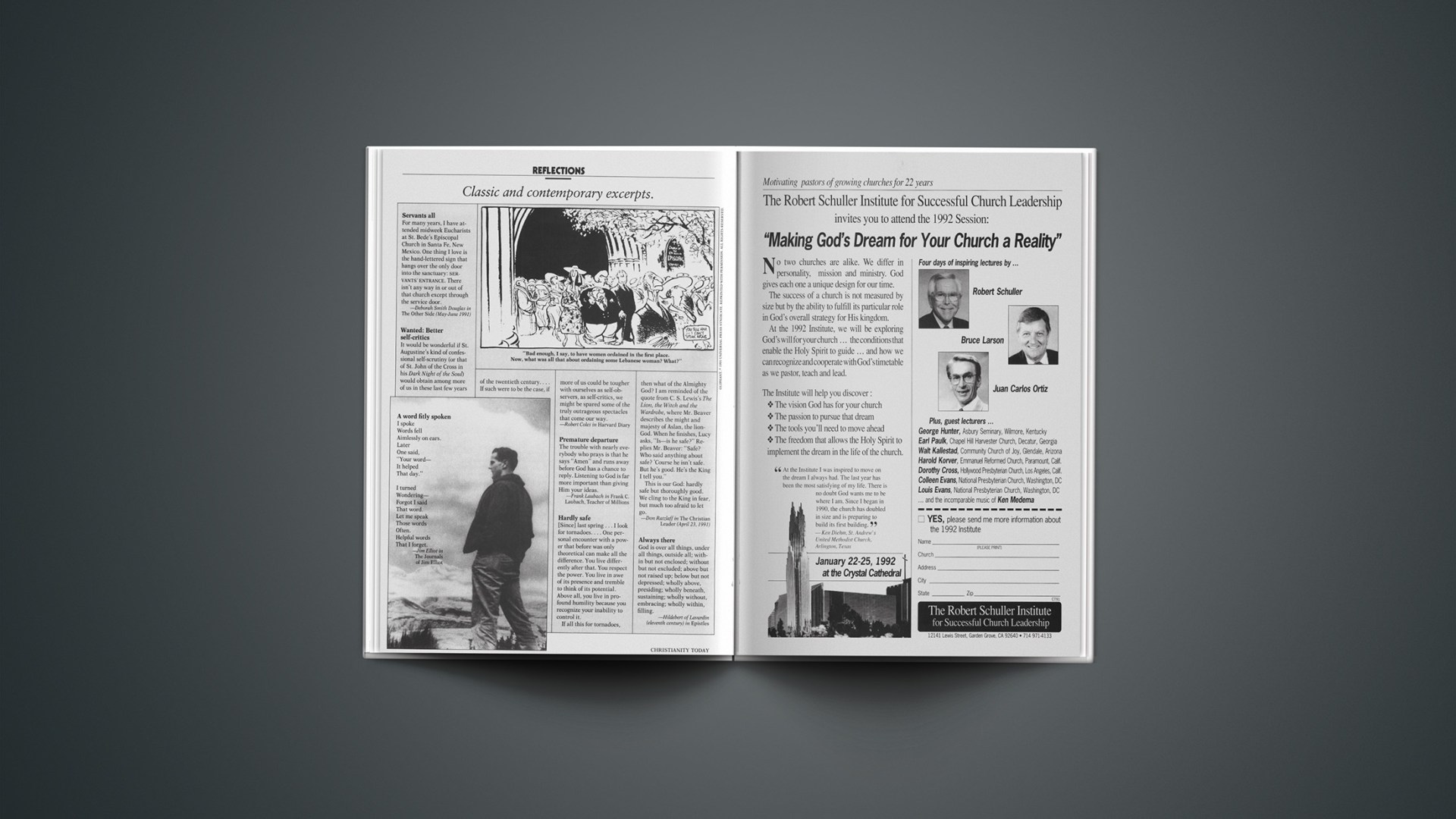Servants All
For many years, I have attended midweek Eucharists at St. Bede’s Episcopal Church in Santa Fe, New Mexico. One thing I love is the hand-lettered sign that hangs over the only door into the sanctuary: SERVANTS’ ENTRANCE. There isn’t any way in or out of that church except through the service door.
—Deborah Smith Douglas in The Other Side (May–June 1991)
Wanted: Better self-critics
It would be wonderful if St. Augustine’s kind of confessional self-scrutiny (or that of St. John of the Cross in his Dark Night of the Soul) would obtain among more of us in these last few years of the twentieth century.… If such were to be the case, if more of us could be tougher with ourselves as self-observers, as self-critics, we might be spared some of the truly outrageous spectacles that come our way.
—Robert Coles in Harvard Diary
Premature departure
The trouble with nearly everybody who prays is that he says “Amen” and runs away before God has a chance to reply. Listening to God is far more important than giving Him your ideas.
—Frank Laubach in Frank C.
Laubach, Teacher of Millions
Hardly safe
[Since] last spring … I look for tornadoes.… One personal encounter with a power that before was only theoretical can make all the difference. You live differently after that. You respect the power. You live in awe of its presence and tremble to think of its potential. Above all, you live in profound humility because you recognize your inability to control it.
If all this for tornadoes, then what of the Almighty God? I am reminded of the quote from C. S. Lewis’s The Lion, the Witch and the Wardrobe, where Mr. Beaver describes the might and majesty of Aslan, the lion-God. When he finishes, Lucy asks, “Is—is he safe?” Replies Mr. Beaver: “Safe? Who said anything about safe? ’Course he isn’t safe. But he’s good. He’s the King I tell you.”
This is our God: hardly safe but thoroughly good. We cling to the King in fear, but much too afraid to let go.
—Don Ratzlaff in The Christian Leader (April 23, 1991)
Always there
God is over all things, under all things, outside all; within but not enclosed; without but not excluded; above but not raised up; below but not depressed; wholly above, presiding; wholly beneath, sustaining; wholly without, embracing; wholly within, filling.
—Hildebert of Lavardin (eleventh century) in Epistles
A word fitly spoken
I spoke
Words fell
Aimlessly on ears.
Later
One said,
“Your word—
It helped
That day.”
I turned
Wondering—
Forgot I said
That word.
Let me speak
Those words
Often.
Helpful words
That I forget.
—Jim Elliot in The Journals of Jim Elliot










